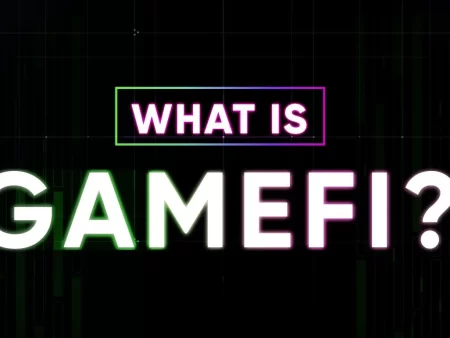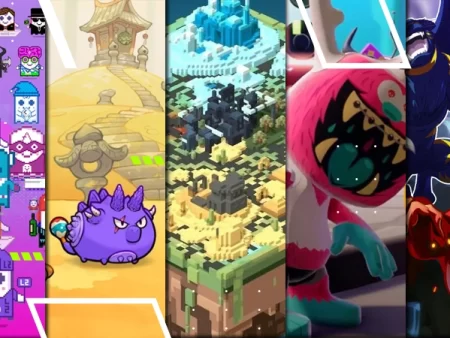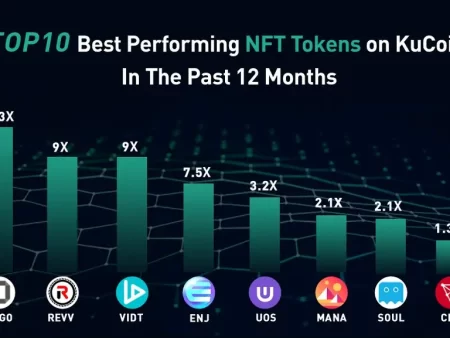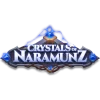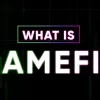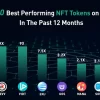The advent of blockchain technology has brought about a new era in online gaming. Decentralized games, also known as DGames, are becoming increasingly popular as they provide gamers with a new level of ownership, transparency, and security. In this article, we’ll explore what decentralized games are, how they work, and why they’re important for the future of online gaming.
What Are Decentralized Games?
Decentralized games are video games that are built on blockchain technology, which allows for a decentralized and transparent gaming experience. In traditional online games, the game is owned and controlled by a central authority, such as a game developer or a game publisher. In contrast, these games are owned and controlled by the players themselves, with game logic being executed on a distributed network of nodes.
How Do Decentralized Games Work?
Decentralized games are powered by blockchain technology, which is a distributed ledger that records all transactions and interactions within the game. The game logic is executed by smart contracts, which are self-executing programs that are stored on the blockchain. These smart contracts ensure that the game is fair and transparent, as all actions and transactions are recorded on the blockchain and can be audited by anyone.
In addition to providing transparency and security,the games also allow players to truly own their in-game assets. In traditional online games, players can purchase in-game items, such as weapons or skins, but they don’t actually own these items. Instead, they are stored on a central server controlled by the game developer. In these games, however, all in-game assets are stored on the blockchain, and players have complete ownership and control over their assets.
Why Are Decentralized Games Important for the Future of Online Gaming?
Decentralized games offer several advantages over traditional online games. First and foremost, they provide players with a new level of ownership and control over their in-game assets. This not only makes the game more enjoyable for players, but it also opens up new opportunities for in-game economies and trading.
In addition, the games are more transparent and secure than traditional online games. Because all transactions are recorded on the blockchain, it’s virtually impossible for players to cheat or engage in fraudulent activities. This provides a level of trust and security that is missing from traditional online games.
Finally, these games have the potential to disrupt the gaming industry as we know it. By removing the need for a central authority, decentralized games empower players and give them a greater say in the development and evolution of the game. This creates a more collaborative and community-driven gaming experience that is more in line with the values of the modern gaming community.
The Future of Decentralized Games
As blockchain technology continues to evolve and mature, we can expect to see even more innovation in the world of these games. New games are being developed all the time, and existing games are being updated to take advantage of the latest blockchain technology.
In the future, we can expect to see more complex and sophisticated games that take full advantage of the decentralized nature of blockchain technology. We may also see the emergence of new game genres that are only possible in a decentralized environment.
Conclusion
Decentralized games represent a new frontier in online gaming. By leveraging the power of blockchain technology, these games offer players a new level of ownership, transparency, and security. They also have the potential to disrupt the gaming industry and create a more collaborative and community-driven gaming experience. As blockchain technology continues to evolve, we can expect to see even more innovation in the world of games.
FAQs
- What is the difference between decentralized games and traditional online games?
These games are built on blockchain technology and are owned and controlled by the players themselves, whereas traditional online games are owned and controlled by a central authority such as a game developer or game publisher.
- How do decentralized games ensure fairness?
These games use smart contracts to execute game logic, which ensures that the game is fair and transparent. All actions and transactions are recorded on the blockchain, making it virtually impossible for players to cheat or engage in fraudulent activities.
- Can players trade their in-game assets in decentralized games?
Yes, players can trade their in-game assets in the games. Because all assets are stored on the blockchain and are owned by the players themselves, it’s easy for players to buy, sell, and trade their in-game assets.
- Are there any popular decentralized games currently available?
Yes, there are several popular games currently available, including Axie Infinity, The Sandbox, and Gods Unchained.
- What is the potential impact of decentralized games on the gaming industry?
These games have the potential to disrupt the gaming industry by empowering players and giving them a greater say in the development and evolution of the game. This creates a more collaborative and community-driven gaming experience that is more in line with the values of the modern gaming community.
